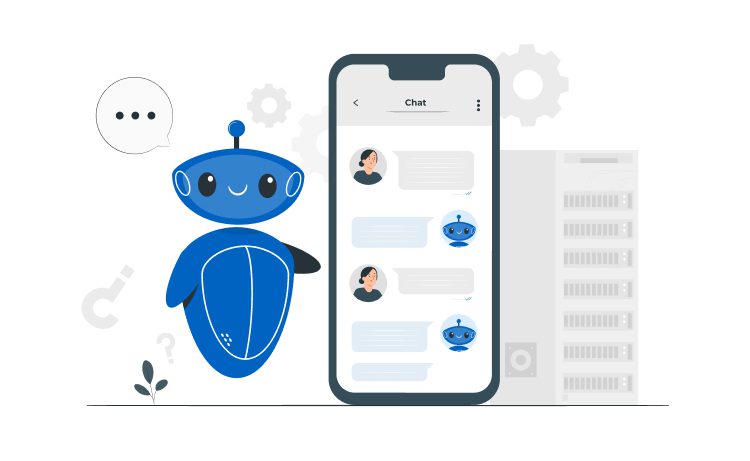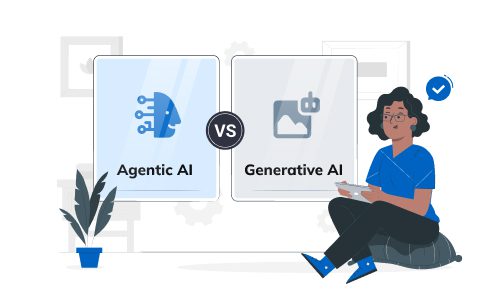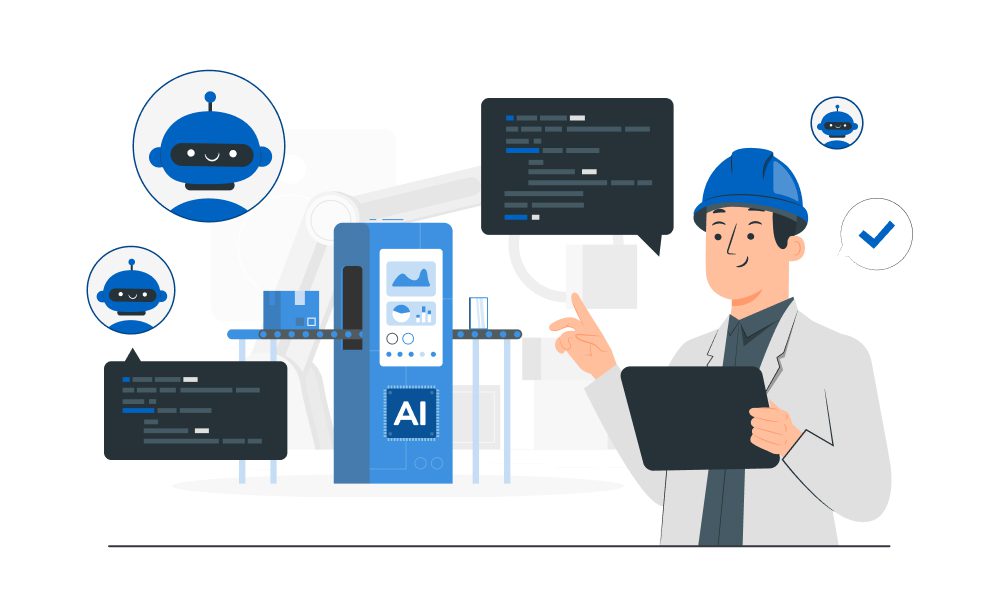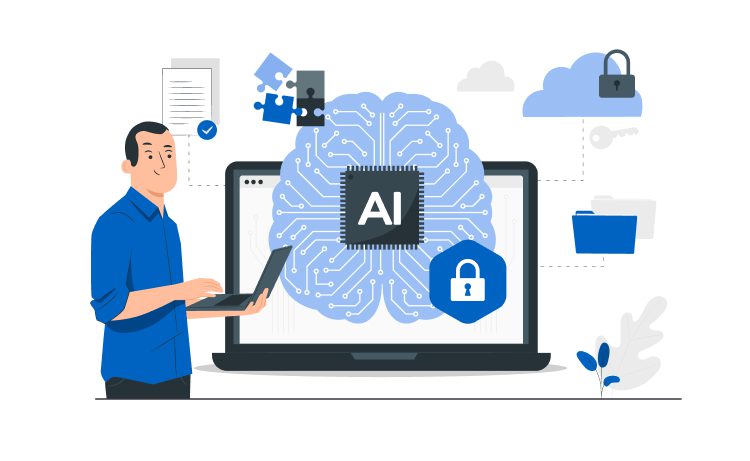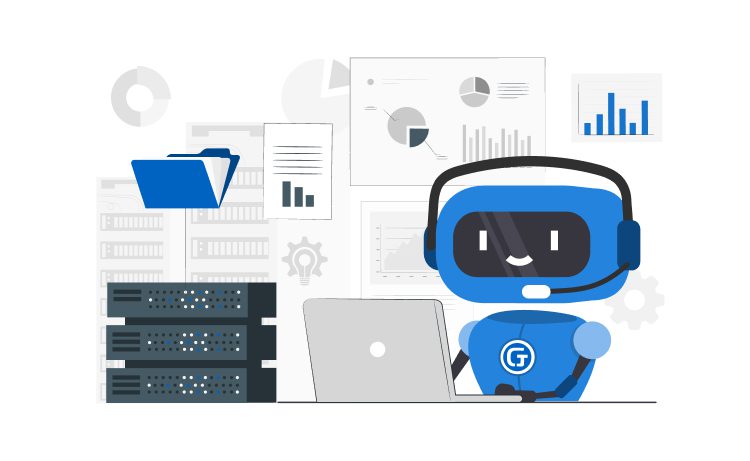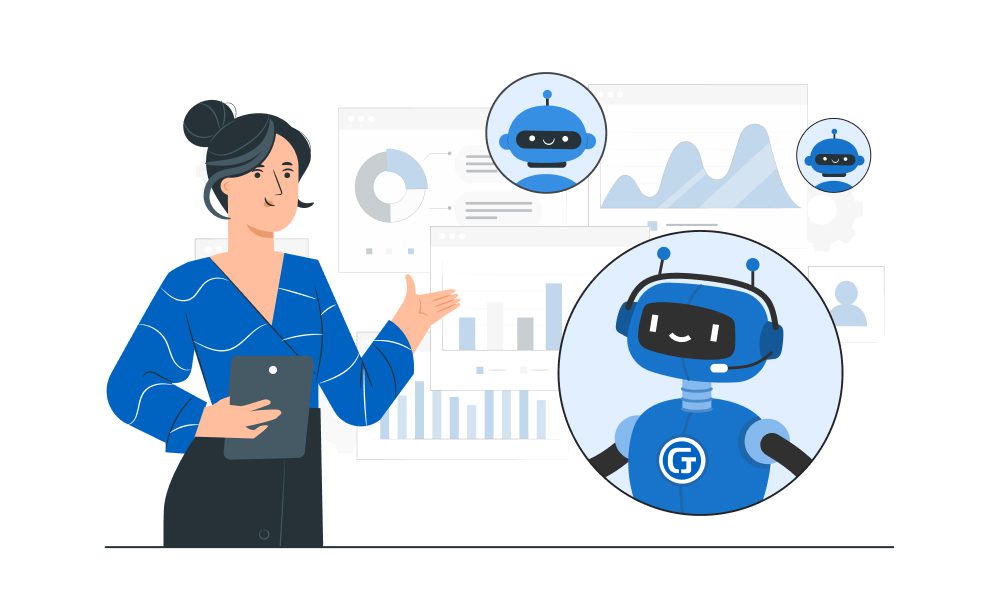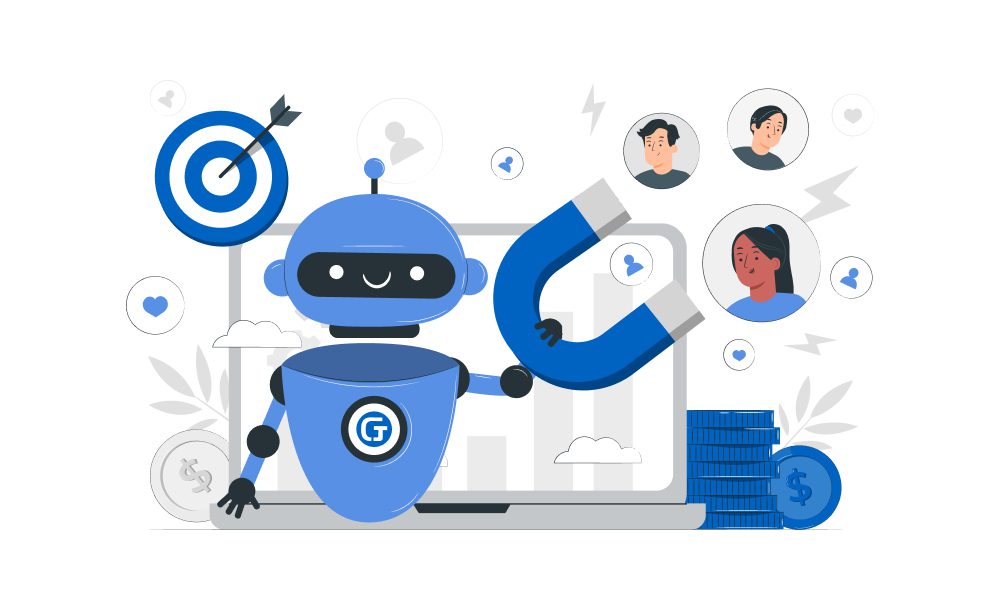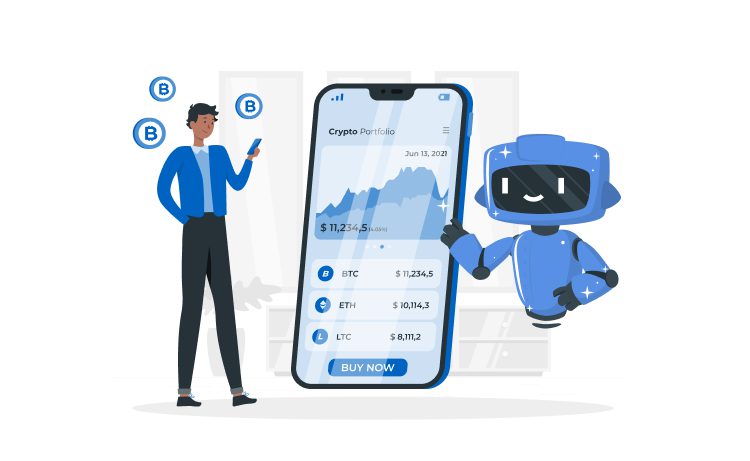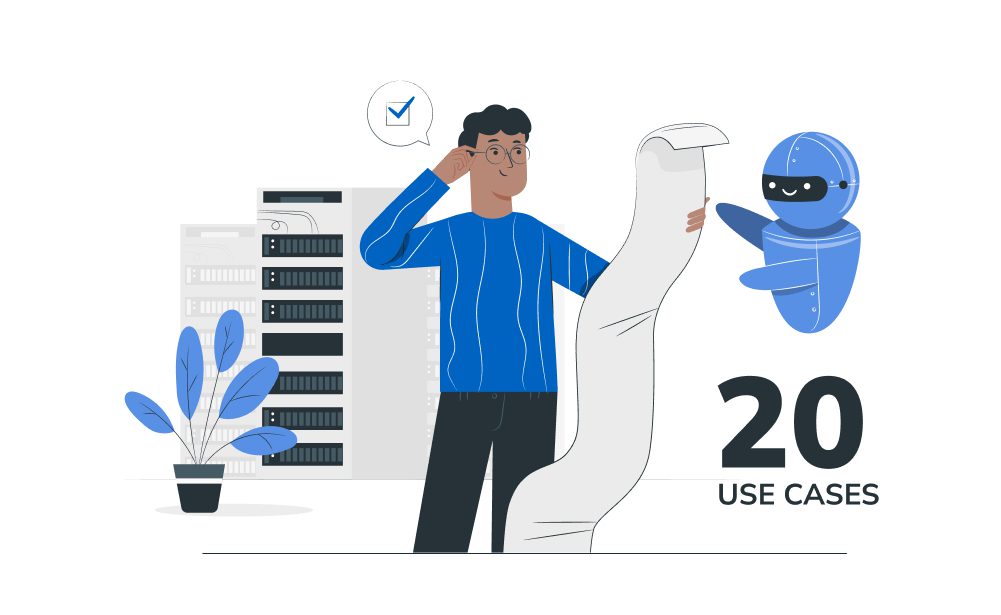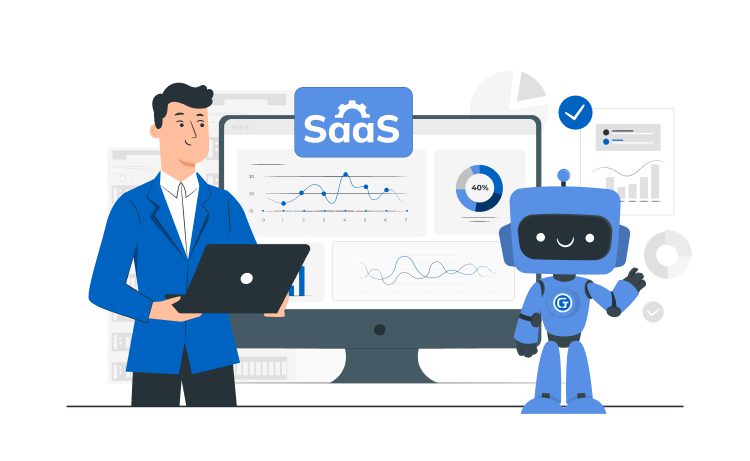
How Vertical AI Agents Are Replacing SaaS in Daily Operations



The launch of GPT-3.5 and ChatGPT in December 2022 blew the doors wide open – unlocking new possibilities in text, voice, images, video, and beyond.
Two camps quickly formed: the builders – those who dove in and started creating – and the thinkers – who claimed building on AI was a dead end.
Spoiler alert: the builders made bank. It’s a modern-day gold rush. Opportunities are everywhere – every corner of the web and the world is up for grabs.
And the best part? It’s still early. This wave might be even more significant than the SaaS boom of the 2010s.
So, the new layer is vertical AI agents, purpose-built for specific industries and tasks. They’re not just tools – they’re replacing traditional SaaS in daily operations, one workflow at a time. This is precisely what we will discuss today.
Content
Vertical AI agents are like smart digital assistants built for one specific job or industry – think of them as legal assistants for lawyers or virtual intake nurses for clinics. Instead of being general-purpose like ChatGPT, you can train them to understand a particular field’s language, workflows, and tools.
That means they can do stuff – not just chat – like handle scheduling, write reports, or process forms automatically. It’s like giving every business its own AI-powered team member.
While SaaS platforms provide general-purpose software accessible via the cloud, vertical AI agents integrate deeper into workflows, learning from domain-specific data. As businesses demand more contextual, adaptive solutions, vertical AI agents emerge as a more innovative alternative to one-size-fits-all SaaS products.
| Feature | Vertical AI Agents | SaaS |
| Focus | Industry-specific / domain-specific | General-purpose / cross-industry |
| Intelligence Level | AI-powered, adaptive, and context-aware | Limited AI, rule-based or manual configuration |
| Customization | Highly tailored to specific workflows | Standardized with limited customization |
| Integration Depth | Deeply embedded in operational processes | Often surface-level or requires extra tooling |
| Learning Capability | Continuously learns from data in its domain | Static unless manually updated |
| Automation Scope | End-to-end task automation | Partial automation, often requires human input |
| Speed of Deployment | Slower initial setup but faster optimization | Faster to deploy, but may lack flexibility |
| Cost Over Time | More cost-effective with scale and learning | Fixed pricing, can become expensive at scale |
| User Experience | Adaptive, task-driven interfaces | Traditional UI focused on software navigation |
| Examples | AI medical assistants, legal AI agents | CRM tools (e.g., Salesforce), project management (e.g., Asana) |
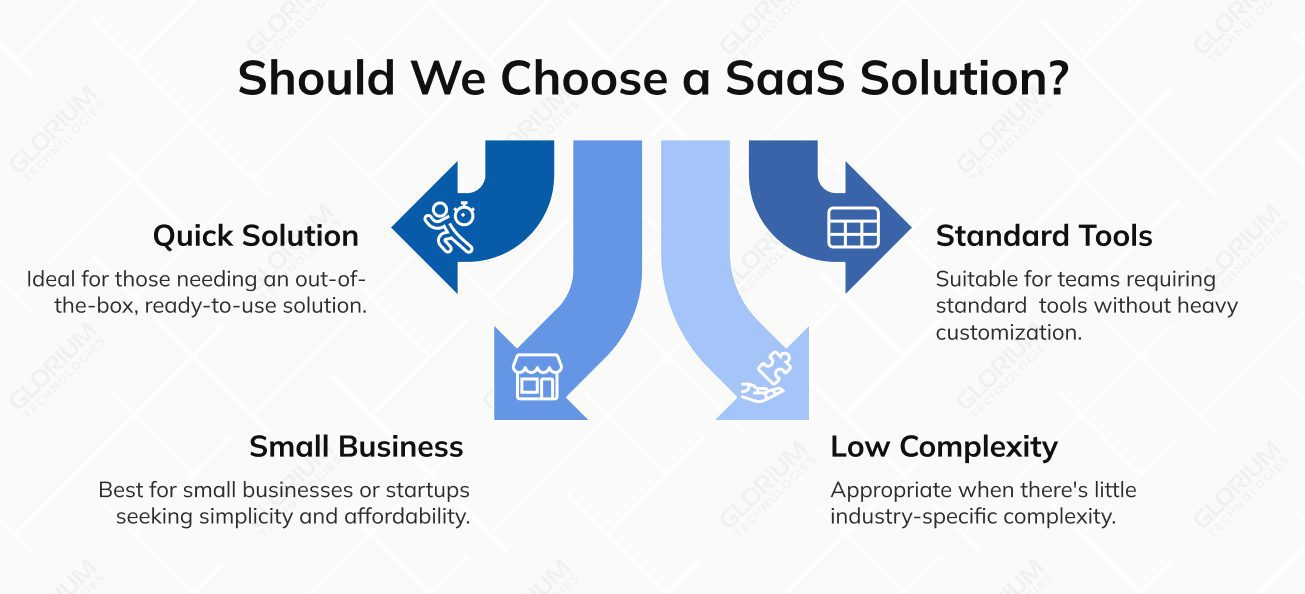
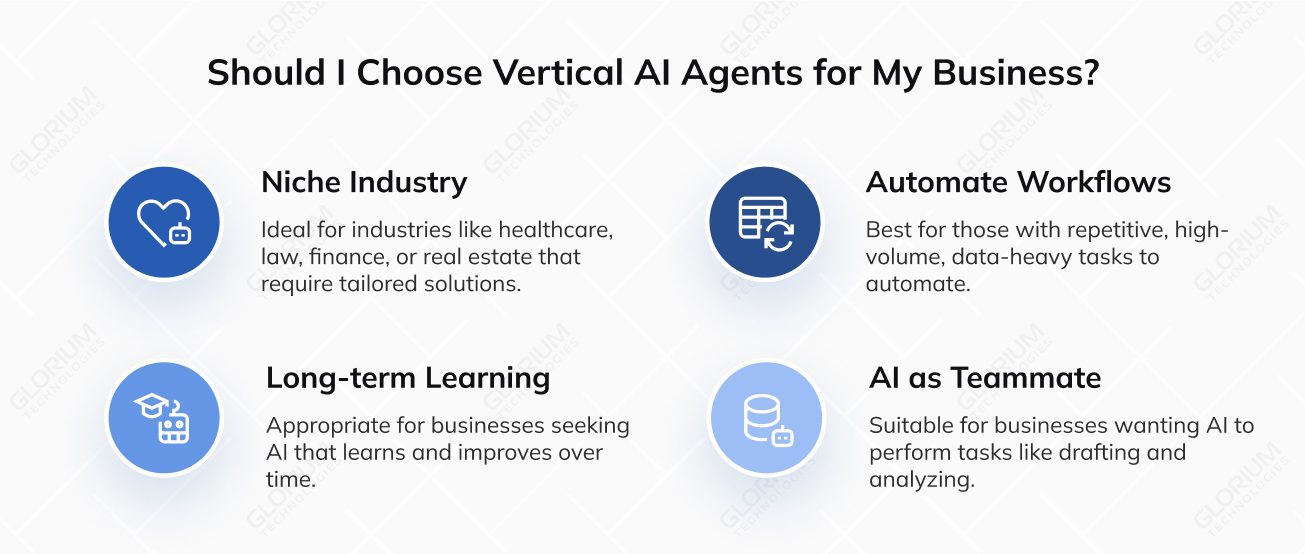
Bottom line? SaaS is great for broad, general needs. Vertical AI agents are your go-to when you want intelligent, industry-savvy automation.
Vertical AI Agents Business Impact
The Vertical AI market was worth $12.9B in 2024 and is projected to hit $48B by 2034 – and could even surpass $100B by 2032. These numbers show not only steady growth but also a fundamental shift in how businesses operate and scale.
Vertical AI agents are designed to do one thing very well within a specific industry or function. Because they’re highly focused, they eliminate the inefficiencies of generic tools.
Businesses are seeing substantial improvements in task completion time, accuracy, and consistency. These agents can automate end-to-end workflows that used to require entire teams, freeing up human talent for higher-level strategic work.
One of the most compelling reasons companies invest in building vertical AI agents is the reduction in operational costs. These agents reduce the need for large support teams, eliminate bottlenecks in repetitive tasks, and minimize the overhead associated with training and onboarding.
In many cases, companies report saving millions annually. The ability to scale without hiring additional staff has become a game-changer, especially for growth-stage businesses.
Vertical AI agents are not just about long-term value – they often deliver results quickly. Many organizations see a return on investment within the first three to six months. Average ROI figures are already crossing the 300 percent mark within the first year.
The speed and clarity of these returns make them a strong choice for leaders looking to optimize their digital transformation strategies without waiting years to see results.
The ability to learn and adapt using domain-specific data sets vertical AI apart from traditional automation. These systems go beyond task automation to provide different AI use cases, such as real-time insights, pattern recognition, and predictive suggestions.
In industries like finance and healthcare, they help professionals spot risks, surface insights, and make faster, more accurate decisions.
We’re already seeing widespread adoption across sectors. In healthcare, vertical AI agents are helping with diagnostics, scheduling, and patient records management. In finance, they handle compliance checks, fraud detection, and portfolio analysis.
HR teams use them to screen resumes, conduct live AI-led interviews, and manage candidate pipelines. Crypto AI agents are analyzing smart contracts, monitoring blockchain transactions, and keeping up with evolving regulatory frameworks. This kind of adoption is happening fast and is only expected to accelerate.
Vertical AI agents represent a broader evolution in how companies think about technology. Where SaaS platforms were tools people use, AI agents are increasingly acting as collaborators – systems that carry out work on behalf of teams with minimal supervision.
They don’t just support human work; in many cases, they replace or augment it at a much higher scale and consistency.
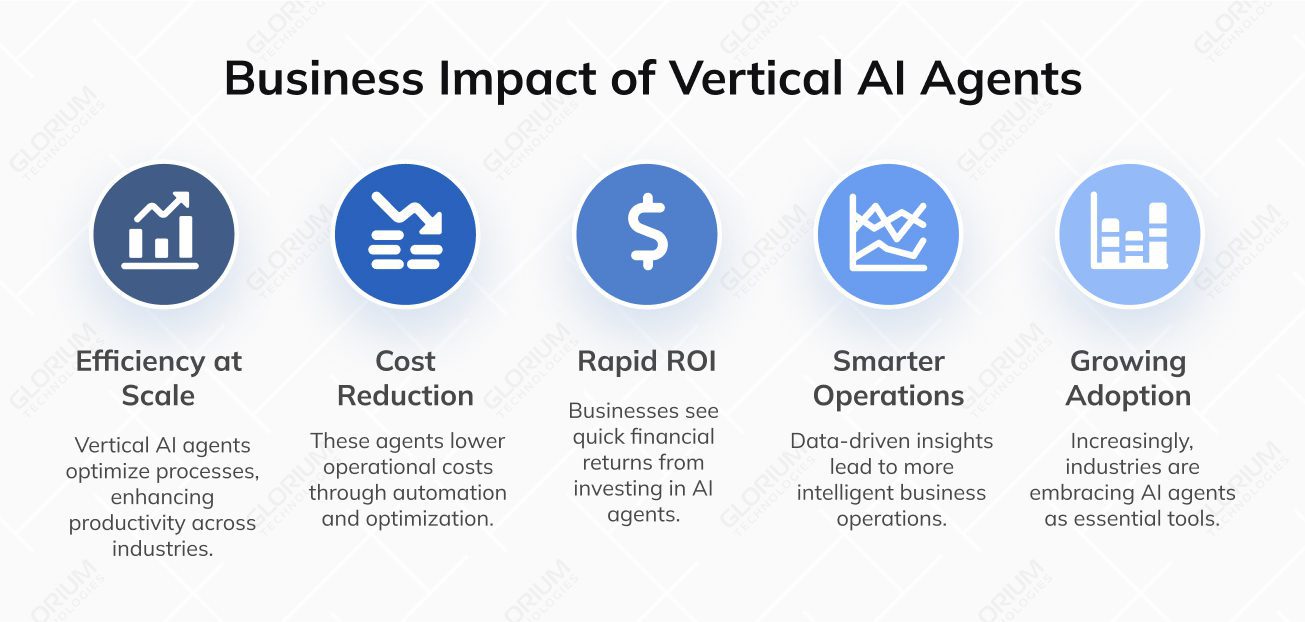
Vertical AI Agents handle data privacy and security by being designed around the specific compliance needs of their industries. They often operate within secure, enterprise-grade environments that meet regulations like GDPR, HIPAA, or SOC 2, depending on the use case.
Many are deployed in private cloud or on-premises to ensure tighter control over sensitive data. These agents can also be fine-tuned using anonymized or encrypted datasets, reducing exposure to personal or proprietary information.
Need a Vertical AI Agent? GloriumTech can build a secure, custom solution that truly fits your industry in just two weeks and under $2000. Whether you’re in healthcare, finance, or e-commerce, we deliver fast without cutting corners.
Let’s discuss your idea – and rock the industry!
